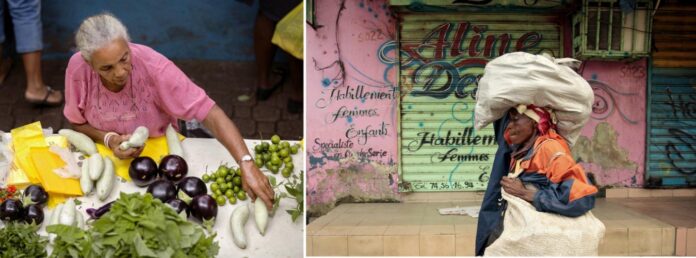World Elder Abuse Awareness Day
15 June 2021
COVID-19: Violence and neglect increases for older persons during lockdown, says UN expert
GENEVA (14 June 2021) – Violence, abuse and neglect of older persons have been brought into sharp focus during the COVID-19 pandemic. To mark World Elder Abuse Awareness Day, Claudia Mahler, the Independent Expert on the enjoyment of all human rights of older persons, issues the following statement:
“Distressing reports from care homes in different parts of the world showed neglect, isolation and lack of adequate services, including healthcare, social and legal services. Lockdown measures resulted in increases in gender-based violence and higher risks of violence, abuse and neglect of older persons confined with family members and caregivers.
Despite widespread alarm over the situation of older persons during the pandemic, the challenges and barriers to seek effective redress and remedies have received little attention. On the contrary, some disturbing practices were reported with care homes being given immunity from civil liability for COVID-19 related deaths and putting in place contractual clauses that waive the right to file a court case and make arbitration the only option for alleged abuse or mistreatment. Elsewhere, older persons and their families expressed despair and frustration with the lack of transparency and responsiveness to complaints raised with aged care services providers.
These developments undermine older persons’ access to justice and to an effective remedy. Older persons are rights holders whose dignity and rights do not have an expiration date in later life. Access to justice encompasses the right to a fair trial, equal access to and equality before the courts, and the right to seek and obtain just and timely remedies for human rights violations.
Entrenched ageist attitudes further hinder older persons from claiming their rights and undermine their autonomy to make their own choices and decisions.
Lack of detailed information and analysis limits the possibility to reveal patterns of abuse which remain vastly under reported and determine the gaps in existing interventions, as well as to identify concrete action needed to provide adequate protection to older persons.
Older persons must not be left behind when seeking redress and remedies. I urge States to adopt a binding international human rights instrument, as well as national legislation and measures, to ensure access to justice for older persons with full respect of their autonomy. This should include the provision of legal aid, dedicated counselling and support services, diverse and age-appropriate formats to share information about rights and legal complaints mechanisms, reduction or exemption of litigation fees, and improved accessibility.”
ENDS
Ms. Claudia Mahler (Austria) was appointed by the UN Human Rights Council as Independent Expert on the enjoyment of all human rights by older persons in May 2020. She has been working for the German Institute for Human Rights as a senior researcher in the field of economic, social and cultural rights since 2010. She was also a visiting professor at the Alice Salomon Hochschule in 2020-2021. From 2001 to 2009, Ms. Mahler conducted research at the Human Rights Centre of the University of Potsdam where her main fields were in human rights education, minority rights and the law of asylum. In 2000, she received her doctoral degree and was appointed as Vice President of the Human Rights Commission for Tyrol and Vorarlberg.
The Special Rapporteurs and Independent Experts are part of what is known as the Special Procedures of the Human Rights Council. Special Procedures, the largest body of independent experts in the UN Human Rights system, is the general name of the Council’s independent fact-finding and monitoring mechanisms that address either specific country situations or thematic issues in all parts of the world. Special Procedures’ experts work on a voluntary basis; they are not UN staff and do not receive a salary for their work. They are independent from any government or organization and serve in their individual capacity.
Read more on the human rights of older persons

